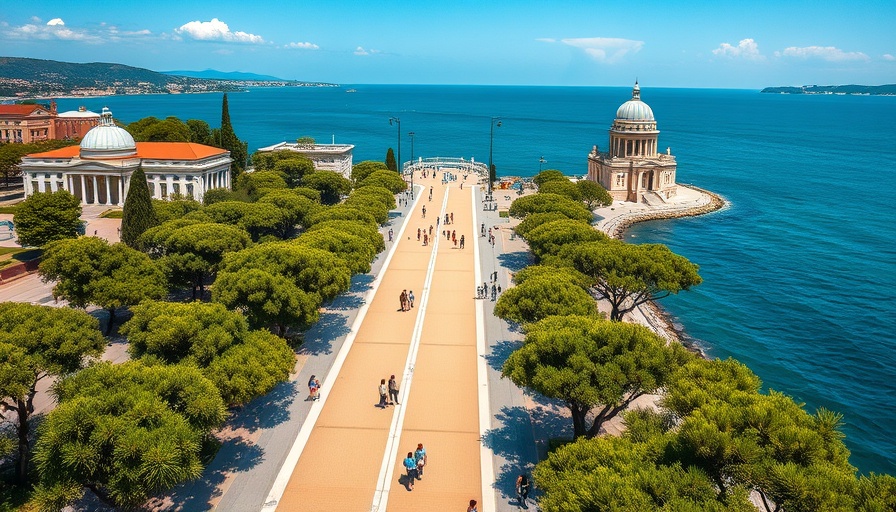
Crimea: A Historical Crossroads Turned Battlefield
Once hailed as a crossroads of civilizations and a stunning summer retreat, Crimea now finds itself besieged and transformed into a military theater. Since Russia's annexation in 2014, the peninsula, which once attracted millions of international visitors annually, primarily from Ukraine and Russia, has increasingly isolated itself. Today, it serves a smaller subset of visitors, many of whom carry the baggage of conflict with them.
The Current State of Crimea: Closer to the Conflict
The current situation sees Crimea as a target in the ongoing Ukraine conflict. While local news suggests Crimea might serve as a picturesque beach destination, the reality is rife with tension. Ukrainian forces have ramped up attacks on critical infrastructure such as the Crimea bridge, aiming to disrupt access and logistics for Russian troops. Each month, these covert operations protect Ukrainian sovereignty while inflicting continual damage on the vital lifeline between the Crimean Peninsula and the Russian mainland, reflecting the chaos of contemporary warfare.
The Human Experience: Life on the Peninsula
Despite the conflict, a segment of Russians who have settled in Crimea tend to sidestep political narratives, perceiving the ongoing strife merely as an inconvenience rather than a harbinger of change. This phenomenon can be traced back to the Kremlin's propaganda, centered around the slogan “Crimea is Ours.” Visitors from Russia flock to enjoy historic beaches while simultaneously dodging the looming threat of drone strikes. The juxtaposition of leisure against a backdrop of war captures the human tendency to seek normalcy even amid discord.
Global Perspectives: The Future of Crimea
The conflict raises critical questions about international legitimacy and territorial sovereignty. The differing visions for Crimea have not only fueled tensions between Russia and Ukraine but have caught the attention of global negotiators. Amidst ongoing diplomatic discussions, proposals are under consideration that suggest various forms of autonomy or recognition. As historical narratives intertwine, the once tranquil region is now seen as a battleground for narrative dominance marked by competing national identities.
The Ripple Effects of Isolation
The ripple effects for the Crimean economy are profound. Tourism, once the backbone of its economic structure, has been drastically reduced. Once welcoming millions, the beaches are now the site of military exercises and drone defenses, shifting Crimea’s identity from a vibrant cultural hub to a fortified military zone. As the dynamics between Russia, Ukraine, and global powers evolve, the strategic importance of Crimea will likely continue to shape regional and international relations.
Conclusion: Reflecting on a Shifting Landscape
Crimea’s multifaceted narrative is emblematic of the larger themes of conflict and resolution in contemporary geopolitics. As discussions unfold surrounding the peninsula's future, both local residents and the international community must navigate the intricate balance between historical claims and present realities. The world watches closely, understanding that the fate of Crimea extends beyond its borders, influencing broader dialogues about sovereignty, identity, and the human condition.
 Add Row
Add Row  Add
Add 




 Add Row
Add Row  Add
Add 

Write A Comment